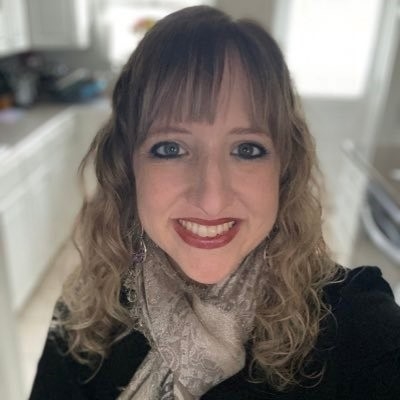Seminar on 'Developing Tools to Measure Neuro-immune Communication' on Friday
Ashley Ross of the University of Cincinnati will give a virtual seminar titled "Developing tools to measure neuro-immune communication" on Zoom from 4-5 p.m. Friday, Dec. 4. The talk is free and open to the public.
Ross is an assistant professor of chemistry at the University of Cincinnati and faculty in the Neuroscience Graduate Program at UC. She earned her Ph.D. in 2014 from the University of Virginia under the guidance of Dr. Jill Venton. She completed her post-doctoral training in Rebecca Pompano's lab at the University of Virginia where she was an American Association of Immunology Careers in Immunology Fellow from 2016-2017. She began her independent career at UC in 2017.
Her research interests are diverse including fundamental investigations into the electrode-analyte interface, development of new electrochemical methods to probe neurochemicals in the brain and immune system, and the development of microfluidic and microengineered platforms to probe neurochemical-regulated signaling between the nervous system and immune system. Her work has been highlighted in the Analyst Emerging Investigator Series, ChemComm Emerging Investigator Issue, and the Female Role Models in Analytical Chemistry Issue in Analytical Bioanalytical Chemistry. She serves on the Advisory Board for the Features Panel of ACS Analytical Chemistry and is on the Board of Directors for the Society of Electroanalytical Chemistry. In her free time, she enjoys hanging out with her kids, painting, and singing.
Communication between the nervous system and immune system is vital for maintaining health yet remains difficult to probe with precise temporal and spatial resolution. The Ross lab uses a combination of electrochemistry and microfabrication techniques to close the current gaps in the field. Specifically, they have developed new electrochemical methods and electrode materials for fast-scan cyclic voltammetry (FSCV) which has enabled them to expand these tools to new analytes involved in neuroimmune communication and other analytes previously not studied with real-time electrochemical techniques.
FSCV is a classic electroanalytical technique most often used in the brain to study neurotransmitter signaling on a 100-ms timescale; however, the Ross lab has expanded its utility to studying neurochemical events in immune organs like the lymph node. In addition, combining FSCV with microengineered platforms has provided an experimental platform to probe neurotransmitter signaling in multiple organs simultaneously ex vivo during communication. This talk will highlight some of the Ross lab's recent work in this area on method development and the application of these methods to study new biology.
To attend the seminar, please visit the Zoom link.
Meeting ID: 873 4638 0922
Passcode: 8x&W7k)B
Topics
Contacts
Megan Parette, communications officer
Department of Chemistry and Biochemistry
479-575-4601,
mbparett@uark.edu
Headlines
PetSmart CEO J.K. Symancyk to Speak at Walton College Commencement
J.K. Symancyk is an alumnus of the Sam M. Walton College of Business and serves on the Dean’s Executive Advisory Board.
Faulkner Center, Arkansas PBS Partner to Screen Documentary 'Gospel'
The Faulkner Performing Arts Center will host a screening of Gospel, a documentary exploring the origin of Black spirituality through sermon and song, in partnership with Arkansas PBS at 7:30 p.m. Thursday, May 2.
UAPD Officers Mills and Edwards Honored With New Roles
Veterans of the U of A Police Department, Matt Mills has been promoted to assistant chief, and Crandall Edwards has been promoted to administrative captain.
Community Design Center's Greenway Urbanism Project Wins LIV Hospitality Design Award
"Greenway Urbanism" is one of six urban strategies proposed under the Framework Plan for Cherokee Village, a project that received funding through an Our Town grant from the National Endowment for the Arts.
Spring Bike Drive Refurbishes Old Bikes for New Students
All donated bikes will be given to Pedal It Forward, a local nonprofit that will refurbish your bike and return it to the U of A campus to be gifted to a student in need. Hundreds of students have already benefited.





